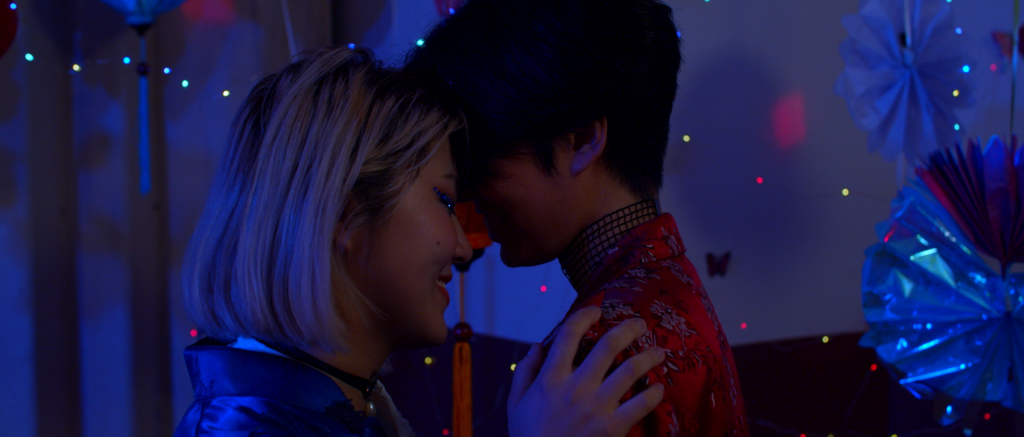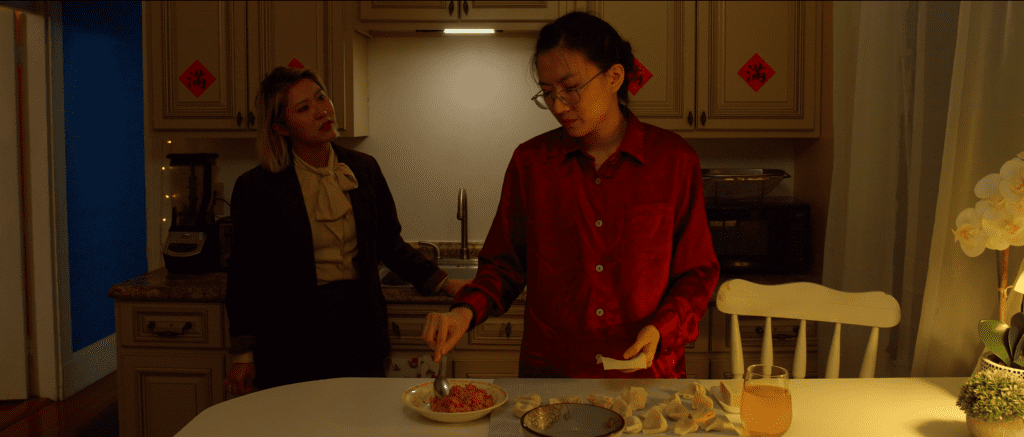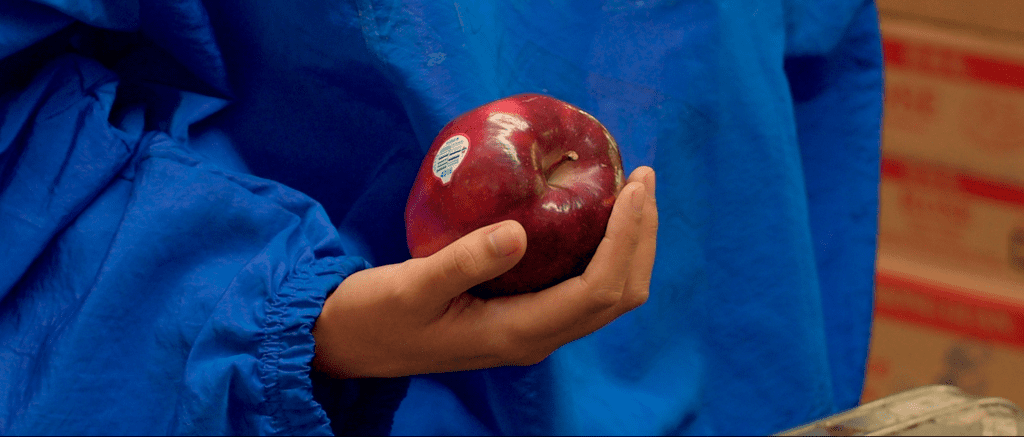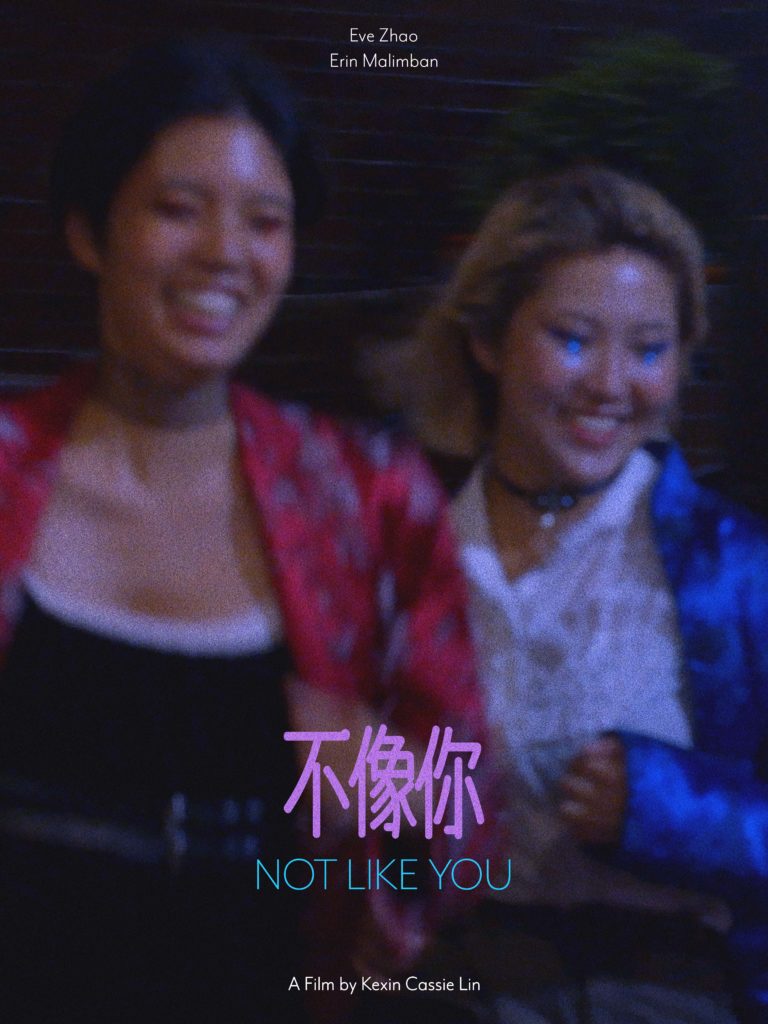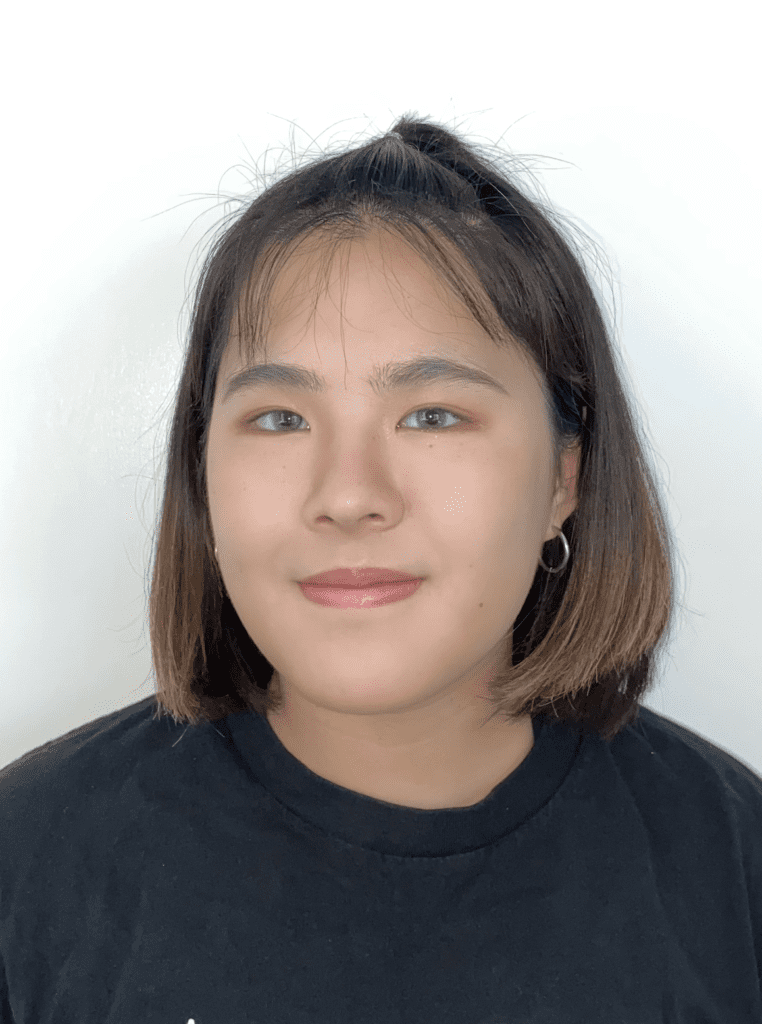导演:林可欣
编剧:林可欣
主演:孔昭 埃林·马林班
制片人:杰奎琳·托姆 卡罗尔·沃利
摄影:马科斯·拉兰孔特
类型:剧情短片
时长:25分
完成时间:2022
对白语言:中文 英语
字幕:中英
地区:美国
制片公司:无
Director: Kexin “Cassie” Lin
Screenwriter: Kexin “Cassie” Lin
Cast: Eve Zhao, Erin Malimban
Producer: Jacqueline Thom, Coral Worley
Cinematographer: Marcos Larancuent
Genre: Featured short
Length: 25min
Year: 2022
Dialogue: English, Chinese
Subtitles: English, Chinese
Region: United States
Production Company: None
故事梗概 Synopsis
作为在童年时期跟随父母移民到美国的1.5代华裔,Mar始终觉得自己被夹在中美两种文化的缝隙里。她遵从父母的愿望从金融专业毕业,却因为种种原因,在唐人街的超市做着一份被父母认为“上不得台面”的工作。直到有一天,七年未见的高中(女)朋友Kai出现在她打工的超市里,随着昔日隐秘记忆的展开,她们之间的感情再次被唤醒,Mar也在Kai的提示之下,发现自己早已在对“错误”性取向的负罪感中迷失了自我。然而,在唐人街这个中华传统价值被保留得事无巨细的地方,Mar因为这段关系而再一次陷入了矛盾之中——直面自我和满足父母,哪一个更重要?面对与七年前相同的困境,她是否还会做出相同的选择?
As a 1.5-generation Chinese America who moved to the U.S. in childhood, Mar always feels like being sandwiched between the two cultures she has experienced. After following her parents’ wish to graduate with a finance degree, she ends up working at a grocery store in Chinatown, a job her parents would never stop complaining about. One day, her high school (girl)friend Kai, whom she hasn’t seen in seven years, shows up at her job. As the discreet history between them unfolds, the connection between them is rekindled. Mar, being reminded by Kai, also starts to realize she has long lost herself in the guilt for her “wrong” sexual orientation. Yet, in this enclosed community where traditional Chinese values have been forced on Mar fiercely, this relationship has once again put Mar into the same dilemma.
导演介绍 Director Biography
林可欣毕业于美国爱默生学院影视制作专业,主攻导演摄像方向,辅修喜剧写作与表演,师从《面子》摄像指导Harlan Bosmajian。在校期间,她专注于LGBTQ+题材叙事片的写作与导演,并将持续探索亚裔酷儿故事的主流化潜力。
Kexin (Cassie) Lin is a bilingual Chinese filmmaker with a concentration in directing and cinematography. She recently graduated from Emerson College with a B.F.A. in Film/TV production and a minor in Comedy Writing & Performance. Harlan Bosmajian, the cinematographer of Saving Face (2004) was her faculty adviser. Having been devoting herself to the writing and production of queer cinema for the past three years, she will keep exploring the potential of Asian queer stories.
导演阐述 Director Statement
我的大学就坐落在唐人街旁边,属于学校的建筑物们散落在它的边缘。它古旧、拥挤,在不同的角落能听到不同的方言,致使我常常会产生一种时间地点双重穿越的错觉——它不像中国,却又太像中国。
我因此燃起了对华裔/移民故事的兴趣。我忍不住去想,他们和我正在经历的这种“双重生活”到底意味着什么?一个人如何可以同时融入两种互相冲突的价值观?家庭和世俗意义上的成功在这里面又扮演着什么样的角色?
于是我选择从同性感情的角度来讲一个华裔故事。作为被中国传统价值包围着的女同性恋,Mar和Kai都拥有两种完全被割裂的身份,而高中时发生的意外更是让Mar从此背负着一份对父母的愧疚感,所以她试图把自己变成父母眼里“正常”的样子,即使这个过程使她痛苦。类似的感受在我自己和我身边的亚裔身上都并不少见,我们中的很多人都会把成功、赚钱、使父母开心当成人生的最终目标,却忽略掉自己的感受。但这个故事里的母女关系并不是绝对的命令-服从关系或溺爱关系,我想要探索一种更有深度也更复杂的关系——两人都是独立的个体,但同时,两人都在相同的困境里挣扎。Mar的束缚和解放并非出于她对父母的顺从或反叛,而代表着亚裔这个族群与两种文化之间的纠葛。通过这样的创作方式,我有意打破英文媒体里对亚裔的刻板叙事,来强调每一个个体的独特性。
My college is located right next to Chinatown, a dusty and crowded area of Boston. Eavesdropping on all kinds of Chinese dialects, I would often get a time-travel illusion—this place doesn’t feel like China but, at the same time, it feels too much like China. It was then that my interest in Asian American/immigrant community story was aroused. I can’t help but ponder: what do these“double lives” that we are experiencing mean to us? How could one fit into two conflict value systems simultaneously? And how do concepts such as “family” and “worldly success” play out in this experience?
That’s why, in Not Like You, I chose to tell an Asian American story through the lens of homosexuality. As lesbians who have been surrounded by Chinese traditional values their entire lives, both Mar and Kai possess two completely isolated identities. For Mar, the incident that happened back in high school had added another layer of guilt to her shoulders, which has led her to create a “normal” image of herself in front of her parents, even if this process is full of pain. The similar experience is not rare within the Asian community, including mine. A lot of us would consider success, wealth, and the fulfillment of our parents’ wishes as the ultimate goals of life, while forgetting to care about how we really feel. With that being said, the mother-daughter dynamic in this story is not purely a command-obey relationship. Instead, I’m looking to explore a deeper and more complex dynamic—Mar and her mother are two individuals independent of each other. At the same time, however, they are both struggling with the same dilemma. Rather than the direct result of her obedience or rebellion to her parents, the constraint and liberation of Mar are more like a representation of the entanglement between two sets of values Asian Americans are experiencing. By presenting the story this way, I intend to reverse the stereotypical Asian narrative in English-speaking media and shed light on the uniqueness of individuals’ stories.
